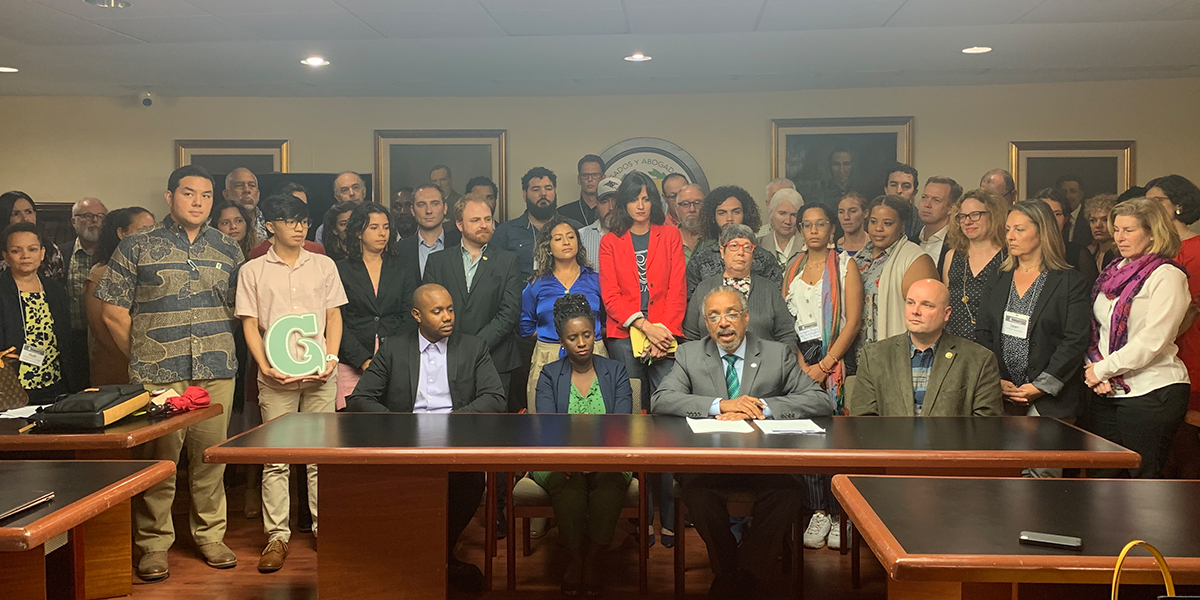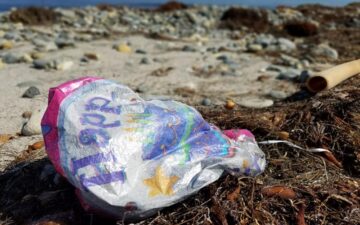Today, The Ocean Foundation is proud to stand with island communities on their path for self-determination, climate resilience, and local solutions. The climate crisis is already devastating island communities across the U.S. and around the world. Extreme weather events, rising seas, economic disruptions, and health threats created or exacerbated by human-driven climate change are disproportionately affecting these communities, even as policies and programs that are not designed for islands routinely fail to meet their needs. That’s why we are proud to sign the Climate Strong Islands Declaration with our partners from island communities in the Caribbean, the North Atlantic, and the Pacific.
The climate crisis is already devastating island communities across the United States and around the world. The extreme weather events, rising seas, economic disruptions, and health threats created or exacerbated by human-driven climate change are disproportionately affecting these communities, even as policies and programs that are not designed for islands routinely fail to meet their needs. With the ecological, social, and economic systems upon which island populations depend under increasing stress, prevailing attitudes and approaches that disadvantage islands must change. We demand action at the local, state, national, and international levels to help island communities respond effectively to the climate emergency facing our civilization.
Island communities in the United States and around the world are literally on the front lines of the climate crisis, and are already coping with:
- extreme weather events and rising seas that are compromising or destroying critical infrastructure, including electrical grids, water systems, telecommunications facilities, roads and bridges, and port facilities;
- often overburdened and under-resourced health care, food, education, and housing systems;
- changes in the marine environment that are devastating fisheries, and degrading the ecosystems upon which many island livelihoods depend; and,
- challenges associated with their physical isolation and, in most cases, a relative lack of political power.
Regulations and policies designed to serve mainland communities often do not serve islands well, including:
- federal and state disaster preparedness, relief, and recovery programs and rules that do not adequately respond to the circumstances faced by island communities;
- energy policies and investments that increase dependence on the mainland in costly and risky ways;
- conventional approaches to drinking water and wastewater systems that disadvantage islands;
- housing standards, building codes, and land use regulations that increase the vulnerability of island communities; and,
- perpetuation of systems and policies that increase food insecurity.
The most vulnerable island communities in the United States are being routinely overlooked, neglected, or marginalized. Examples include:
- post-disaster recovery assistance for Puerto Rico and the U.S. Virgin Islands has been impeded by politics, institutional foot-dragging, and ideological posturing;
- small or isolated island communities often have very few health care providers and services, and those that exist are chronically underfunded; and,
- loss of housing and/or livelihoods contributes to high per capita rates of homelessness and forced relocation as illustrated by the aftermath of Hurricanes Katrina, Maria, and Harvey.
With adequate resources, island communities are well-positioned to:
- leverage investments in energy, telecommunications, transportation, and other technologies to participate more effectively in regional and global economies;
- share promising local practices focused on sustainability and resilience;
- pilot innovative solutions to sustainability and climate mitigation and adaptation;
- pioneer nature-based solutions that enhance coastal resilience and prevent coastal erosion in the face of sea level rise and intensifying storms and natural disasters;
- model effective local implementation of the United Nations Sustainable Development Goals.
We, the signatories, call on government agencies, foundations, corporations, environmental groups, and other organizations to:
- Recognize the potential of islands to develop and perfect transformative approaches to energy, transportation, solid waste, agriculture, ocean, and coastal management
- Support efforts to make island economies more sustainable, self-sufficient, and resilient
- Review existing policies, practices, and priorities to determine if they disadvantage or marginalize island communities
- Collaborate in a respectful and participatory way with island communities to develop new initiatives, programs, and projects that help them respond effectively to the growing climate crisis and other environmental challenges
- Increase the level of funding and technical support available to island communities as they working to transform the critical systems on which they depend
- Ensure that island communities are able to more meaningfully participate in funding and policy-making activities that affect their future
View the Climate Strong Islands Declaration Signatories here.







